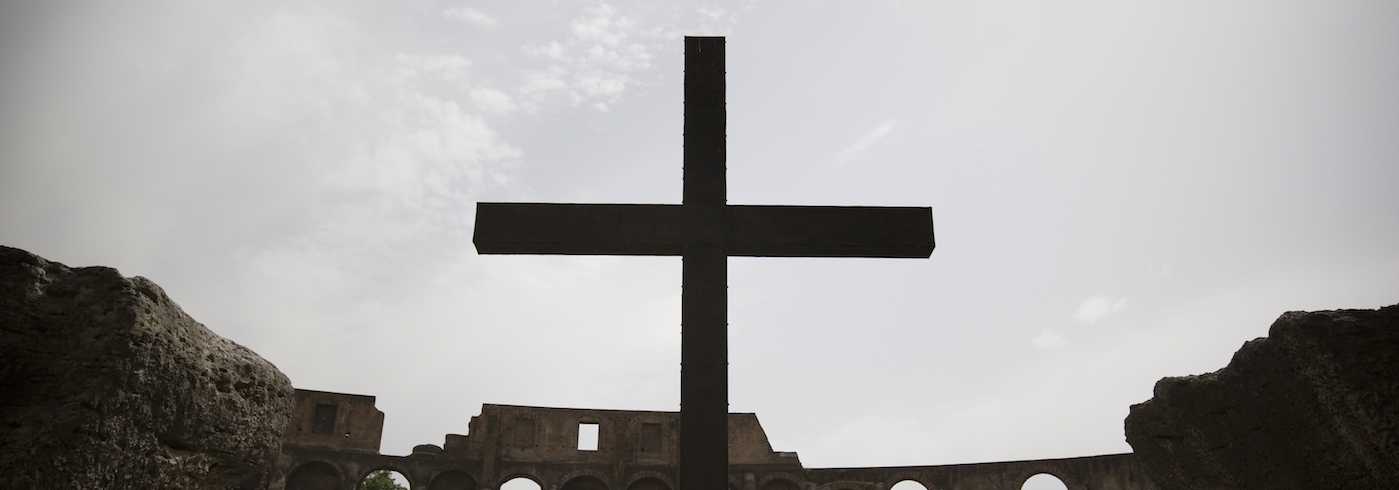The Third Way
The cultural power of discipleship
Christianity in the United States is a mile wide but an inch deep.
The faith, especially its Protestant variety, has exerted considerable influence on the nation’s history and culture. A supermajority of citizens continue to identify themselves as believers. On the whole, evangelical churches — where evangelical serves as a theological descriptor, not a political one — are holding steady even as liberal Protestant congregations and Roman Catholic parishes shed adherents.
Despite these things, many Christians feel their influence on the broader culture is slipping away. A partial explanation comes from the rapid rise over the last two decades of the “nones,” that share of the populace who picks “None of the above” when asked by pollsters to select their religious affiliation.
Radical shifts in public opinion about moral issues such as same-sex marriage, drug use, and voluntary euthanasia constitute an additional explanation. And the once unheard-of criticism of Christian charities, such as the Salvation Army, for continuing to uphold biblical standards of sexual morality offers still another explanation.
None of these explanations, it should be noted, entail that America has entered a post-Christian phase. They do indicate the nation is trending that way, however. If that trend worries you, I encourage you to read Gerald L. Sittser’s Resilient Faith: How the Early Christian “Third Way” Changed the World.
Sittser is professor of theology at Whitworth University in Spokane, Washington, where he also serves as a senior fellow and researcher in the Office of Church Engagement. In Resilient Faith, Sittser offers an account of how the Early Church forged a “Third Way” between accommodation to the surrounding idolatrous culture and isolation from it. He states his thesis at the outset of the book:
[T]he early Christian movement became known as the Third Way because Jesus himself was a new way, which in turn spawned a new movement — new in theology, in story, in authority, in community, in worship, and in behavior. Christian belief was so new, in fact, that it required Christians to develop a process of formation in the Third Way to move new believers from conversion to discipleship ... . Rejecting both accommodation and isolation, early Christians immersed themselves in the culture as followers of Jesus and servants of the kingdom of God.
Jesus is the Way, so His way must become our way too.
Over time, this Third-Way approach gained followers, and with increased followership, increasing influence. By the time Constantine converted to Christianity in A.D. 312, Christians already constituted a significant, though occasionally persecuted, minority within the Roman empire. Over the next century, they became the only legal imperial religion. The once powerless Church became powerful.
Ironically and tragically, this power began to deform the Church. The Third Way became the First Way, integrity giving way to accommodation. Whereas the early Christian movement assumed that idolaters needed a rigorous form of discipleship, the so-called catechumenate, to mold converts into the faith and life of Jesus Christ, the post-Constantinian Church began to assume that everyone under the sway of a Christian emperor was Christian by default. The real faith of early Christians became the nominal faith of Christendom.
And that tension between the real and the nominal brings us back to the feeling so many American Christians have that our cultural influence is slipping away. If it is — and I believe that it is — how should we respond?
One response is simply for American Christians to engage in cultural and political warfare. While I am a proponent of informed Christian engagement in politics and culture, I worry that this response, however effective it may be in the short term, is ineffective in the long term. Sittser captures the gist of the dilemma when he writes:
If anything, the harder Christians fight, the more precipitous the decline will be, for cultural power and privilege will come at an increasingly high price. Christians will either accommodate until the faith becomes almost unrecognizable, or they will isolate until their faith becomes virtually invisible.
The better response — the one called for by Jesus Christ himself — is the way of discipleship, “baptizing [the nations] in the name of the Father and of the Son and of the Holy Spirit, and teaching them to obey everything I have commanded you” (Matthew 28:19-20). According to that way, success is not defined in terms of the accrual of political power or cultural influence, though they may come, but by fidelity to the Lord Jesus Christ regardless of whether they come. He is the Way, so His way must become our way too.
Until American Christians decide fidelity is more important than power and privilege, their Christianity will continue to be a mile wide and an inch deep, though getting narrower and shallower every day.
BOOK REVIEWED
Gerald L. Sittser, Resilient Faith: How the Early Christian “Third Way” Changed the World (Grand Rapids, MI: Brazos Press, 2019).
This article originally appeared in the January/February 2020 edition of Influence magazine.
Influence Magazine & The Healthy Church Network
© 2026 Assemblies of God

